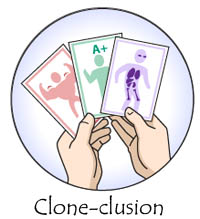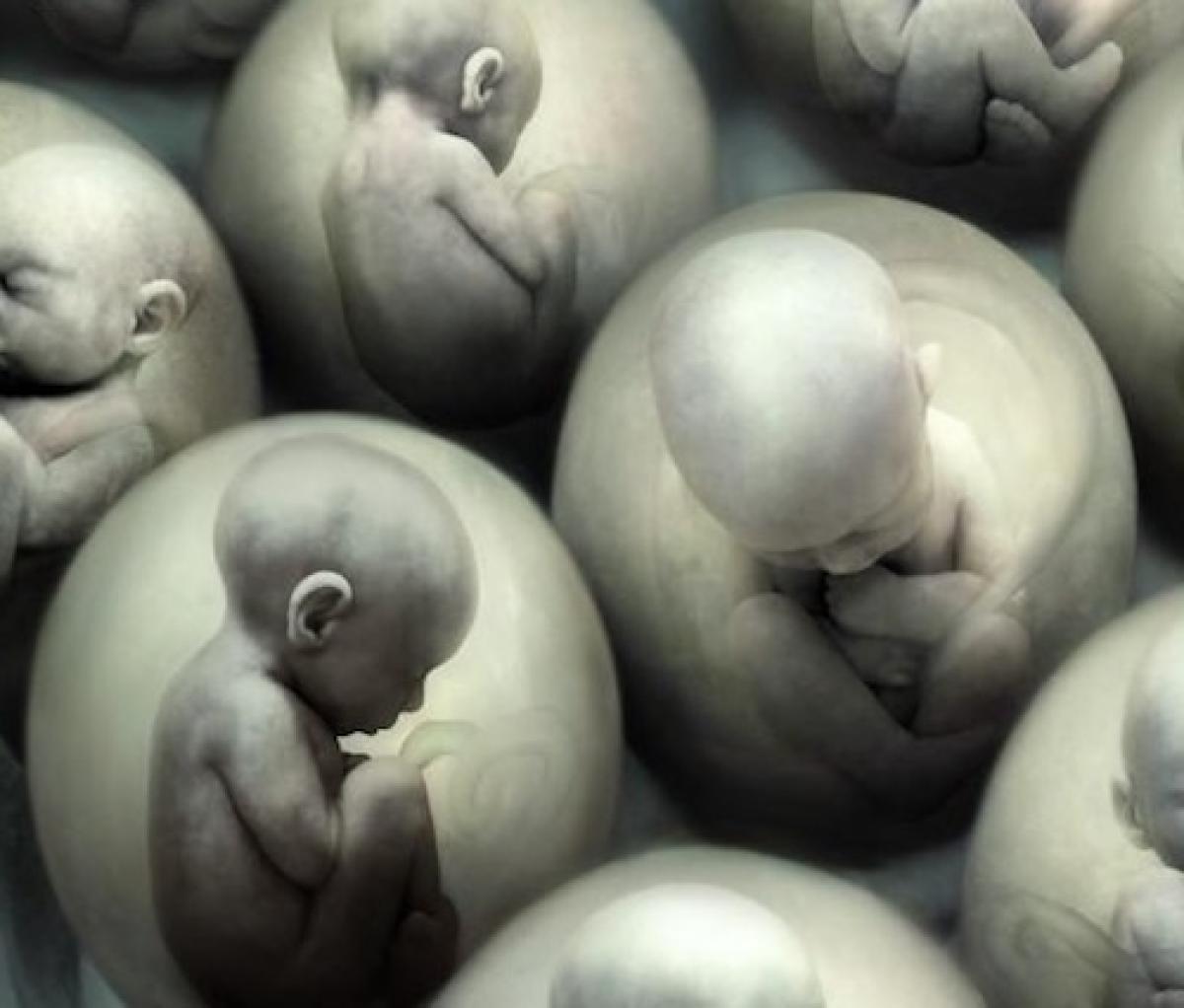Clone-clusion
There are several issues that are brought up by cloning. The logical conclusion to most research done with cloning is the question of cloning people. Cloning of people is currently illegal in the United States and many other countries. There are two main applications of cloning that bring up serious legal and ethical questions.

The first main application of cloning is that the technology can be used to create "designer children." The ability to choose specific genetic material you want to and make a child means that people could custom make their children. This worries people because of the possible use of the technology to make children to save another person from an illness, or to make another person to harvest organs from, or to take the genetic material of a great athlete. The question is: does the designed child have a right to lead life without the burden of the original purpose they were created for?
The second main application of cloning is that the technology can be used to create "stem cells." Stem cells are cells that have not decided what they are to become. Stem cells can theoretically become anything. This makes stem cells important in disease treatment. Stem cells are extracted from an embryo. A fertilized egg will create an embryo. An egg that has had its nucleus removed and replaced by a somatic cell will create an embryo. This act of removing stem cells, stops the embryo from living. Using the nuclear transfer method will create a designer embryo. This designer embryo will have the same cell type as the donor nucleus. The question is: will people start making designer embryos to create stem cells that might save them from disease years from now?
Of course, there are many other issues within issues here. You might know of several. The way to answer these ethical and legal issues is through discussion, education, and scientific research. That means you need to talk with people, listen at school, and maybe even become a scientist yourself!
Credits: Illustration via Drakalogia published under Creative Commons BY SA 3.0.
Read more about: Cloning Ewe
Bibliographic details:
- Article: Clone-clusion
- Author(s): Dr. Biology
- Publisher: Arizona State University School of Life Sciences Ask A Biologist
- Site name: ASU - Ask A Biologist
- Date published: 29 Sep, 2009
- Date accessed:
- Link: https://askabiologist.asu.edu/content/clone-clusion
APA Style
Dr. Biology. (Tue, 09/29/2009 - 22:13). Clone-clusion. ASU - Ask A Biologist. Retrieved from https://askabiologist.asu.edu/content/clone-clusion
Chicago Manual of Style
Dr. Biology. "Clone-clusion". ASU - Ask A Biologist. 29 Sep 2009. https://askabiologist.asu.edu/content/clone-clusion
Dr. Biology. "Clone-clusion". ASU - Ask A Biologist. 29 Sep 2009. ASU - Ask A Biologist, Web. https://askabiologist.asu.edu/content/clone-clusion
MLA 2017 Style

What are the ethics of cloning?
Be Part of
Ask A Biologist
By volunteering, or simply sending us feedback on the site. Scientists, teachers, writers, illustrators, and translators are all important to the program. If you are interested in helping with the website we have a Volunteers page to get the process started.

